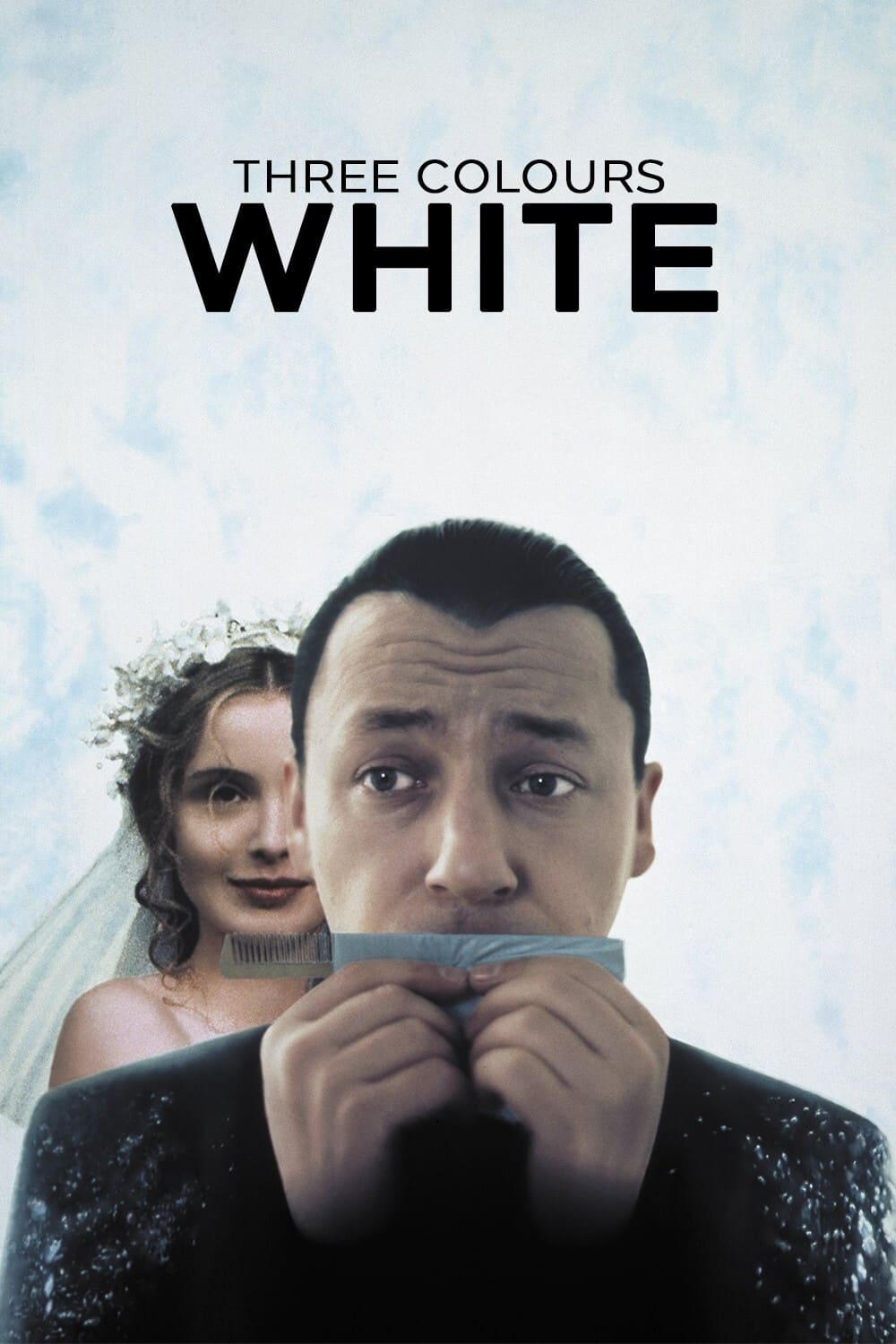
Polish immigrant Karol Karol finds himself out of a marriage, a job and a country when his French wife, Dominique, divorces him after six months due to his impotence. Forced to leave France after losing the business they jointly owned, Karol enlists fellow Polish expatriate Mikołaj to smuggle him back to their homeland.
04 Dec Three Colors: White (1994)
Parallel Conditionals
Kieslowski’s trilogy is usually explained, even by him, in trivial terms, this being the “equality” segment. But this is an intelligent filmmaker, one of the type who actually thinks about the narrative stance of his projects. In this case, we have “Blue” which follows – but not quite – the standard convention of reporting something that happened in the past.
‘Red’ gives you a meditation on two folded presents. ‘White,’ this film, is cast as depicting the future, in particular the conditional future. While other films attempt this more directly, ‘White’ – among the three – is so subtle that you have to actually pay attention.
Everything is what you would do, every detail and plot element from the courthouse sequence. Is it all imagined? It doesn’t matter, but if you consider it so – many parallel futures – it is easier to see how it fits in with the others. Even to the tense of the French Karol studies.
I rate this as the least of the three because he does too much in the plot. The plot is there only to provide a skeleton for the rest, and it is intended to keep us occupied while he does his thing. But its just too elaborate to serve as a mere skeleton and gets in the way. Many viewers even think the story is what the film is about.
Each of the three is an excellent film, but you must see the others first to get this one to register. Each of the three deals with a sense. This is `sight.’
The DVD commentary is pretty useless, in my estimation. It is not enough to have been there.
Posted in 2004
Ted’s Evaluation — 3 of 3: Worth watching.


No Comments